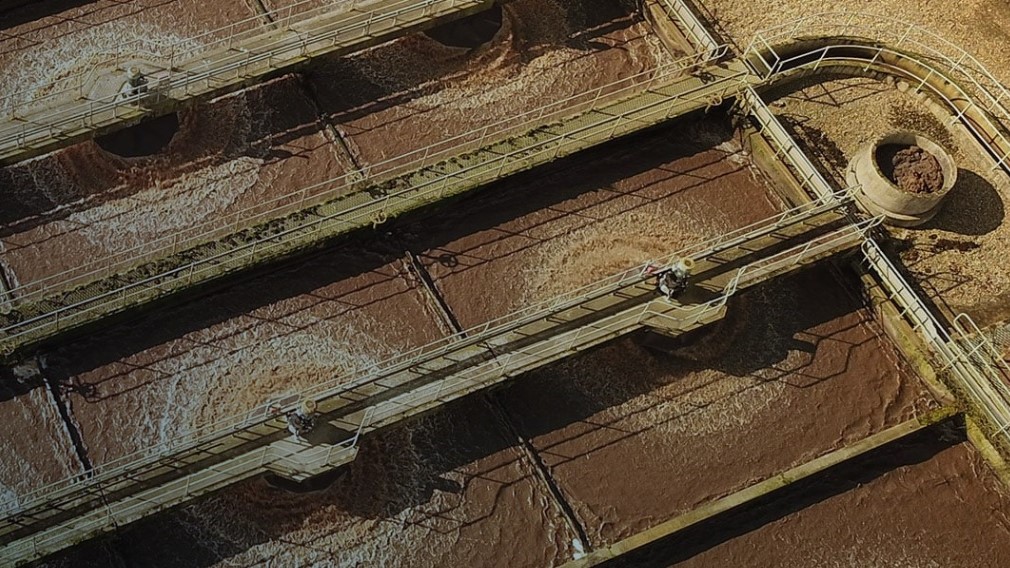
Supercritical Water Oxidation (SCWO) is an efficient and clean sewage sludge elimination process which, when compared to standard anaerobic digestion (AD), can potentially transform water industry practices, by mitigating significant business and environmental risk, reducing both costs and carbon emissions.
The process eliminates organic matter whilst producing resources and a positive energy balance.
With the imminent challenges the UK water industry is facing, implementation of novel and disruptive technologies is a key in facilitating a timely shift from the current paradigm, paving the way to environmentally sustainable operations.
AD has been at the forefront of sludge treatment in the UK since the late 1980’s, treating today approximately 85% of the entire UK’s sewage sludge. This equates to approximately 53 million tonnes of wet sludge per year. The vast majority of biosolids from the AD plants (approximately 3.2 million tonnes) are spread on agricultural land.
Although AD is established as a favourable sludge treatment process, with additional benefit of biogas/biomethane production, supported by government incentives, its actual environmental impact should be reassessed. Considering secondary pollution from nutrient losses, the spreading on land of harmful contaminants contained in biosolids used as fertilizer, and gaseous emissions, its true carbon footprint (embodied and operational), overall environmental viability, and its potential to support net zero 2030 targets are questionable.
AD is associated with the production of several greenhouse gases, namely carbon dioxide, methane, ammonia, and nitrous oxide which are emitted across segments of the operations. Centralisation of AD assets has increased transport demands, and it is estimated that each year 170,000 truckloads of biosolids are transported for agricultural use.
Land application of biosolids contributes heavily to volatilised emissions of ammonia, methane, and nitrous oxide. It is also suspected as being responsible for increasing impact on soil and aquatic health, due to the presence of microplastics, per- and polyfluoroalkyl substances (PFAS) – “forever chemicals”, and other contaminants of emerging concern (CECs). UK treated sludge is estimated to apply 5-10 billion microplastic particles per hectare per year (UKWIR and CEH, 2019). Researchers from Cardiff University have shown that the UK has potentially the highest amount of microplastic contamination in its soils compared to other countries in the EU.
Recent changes in the Environment Agency’s position on Farming Rules for Water (FRfW) are set to impact the spreading of biosolids to land. Designed to prevent diffuse pollution into watercourses, the change in position will limit when nutrients can be applied to land. The new regulatory landscape has driven the UK farming industry to reduce its demand for biosolids, which Water and Sewerage Companies (WASCs) must dispose of, thereby increasing costs. The rise in landfill tax, and gate fees renders landfilling impractical and unsustainable.
The compounded effect of these challenges highlights the imminent need to make fundamental changes in the UK’s management of biosolids. The current situation presents a significant corporate liability for WASCs who need to act.
SCWO is a technology that can entirely change how sewage sludge is treated and provide a truly sustainable solution to biosolids management. SCWO is a physical thermal process that leverages the unique qualities of water above its critical point (374°C and 221 bar) in the presence of an oxidant, yielding a highly effective oxidation reaction that entirely eliminates organic matter, and transforms organic wastes into clean water, energy, inert gas and an inert mineral effluent stream.
SCWO can effectively eliminate the volatile solids fraction and embedded contaminants, such as microplastics and PFAS, in sewage sludges, producing clean water that can be used for ancillary operations, and a concentrated mineral stream, from which phosphorous can be recovered. In addition, the thermal heat generated in the process is converted to electricity that self-powers the unit. This represents a step-change compared to AD that can remove only 40-50% of the volatile solids fraction, cannot treat non-biodegradable contaminants such as microplastics, PFAS and others, and leaves a biosolids residue that requires disposal.
Efficiently scaled SCWO systems have a substantially lower operational carbon footprint compared to AD, eliminate both the need for subsequent energy intensive handling processes and the need to transport a biosolids residue, and ultimately eliminates the need for agricultural spreading or landfilling of biosolids. Moreover, systems can be implemented as modular assets, and are retrofittable, hence their embodied carbon footprint is also much lower than that of AD.
When considering the challenges the UK water industry is facing, adopting efficient sewage sludge processing technologies like SCWO, can provide a solution to these, mitigate corporate liabilities associated with biosolids, secondary pollution and limited biosolids disposal routes, support net zero 2030 targets, and future-proof operations in a changing regulatory landscape.
Tali Harif, Ph.D, MBA, Director, Business Development at 374Water, a global cleantech, social impact company whose mission is to preserve a clean and healthy environment that sustains life.



